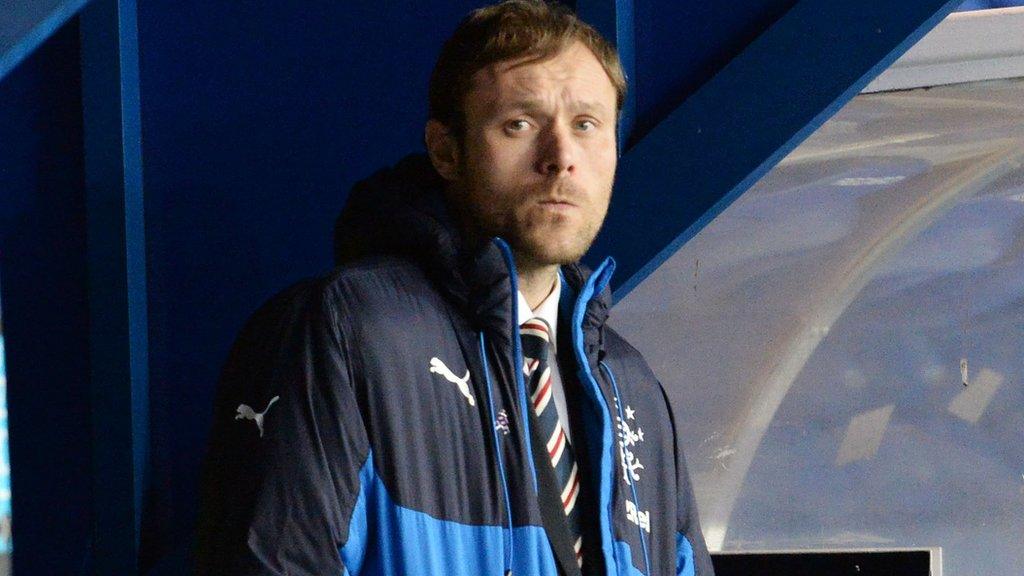Can Scottish clubs prosper under fan ownership?
- Published
Scottish football fan ownership feature
Fan representation in Scottish football has been in the news a lot recently, with the Rangers Supporters Trust and Rangers First building their shareholding at Ibrox.
Often, fan ownership comes about from a crisis situation at a club, such as has happened with Rangers and Hearts.
Here, BBC Scotland speaks to various figures in Scottish football with experience of fan ownership models, or with views on such schemes' likely success.
Ricki Neill, Rangers First
"When we first started we were mocked. Everybody said we'd be lucky to get 400 members. We're now nearly at 13,000 members. It's been a long time. The members didn't really come on board until Christmas time and ever since then thousands are joining every week and now we are the largest fan ownership group in Britain.
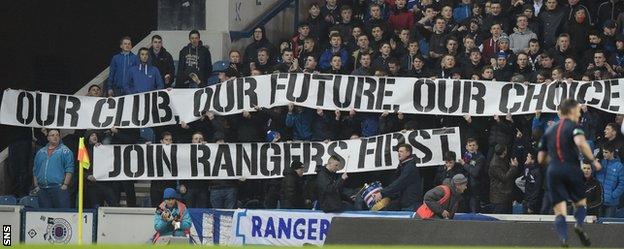
Rangers First has become the largest fan ownership group in Britain with almost 13,000 members
"I'd love to get up to the 30,000s and 40,000s and above.
"We just want to get a member of Rangers First on the board. Once we get 10.1% we can do that and that's when we can make a real change. It means we will be part of all the discussions.
"We've already had discussions with Dave King and some of the Three Bears and they all believe in fan involvement."
Ian Murray MP, Foundation of Hearts
"It was really that crisis that galvanised everyone together.
"When the club, 18 months before that, was told they'd played their last game here at Tynecastle against St Mirren they raised over £1m in six weeks just before Christmas.
"That was a phenomenal amount of money. That money was just a charitable donation in a lot of senses.
"There was nothing they were going to get back for it. And then they rallied again just a few months later when the club really needed them to back the Foundation so we could put a credible plan together.
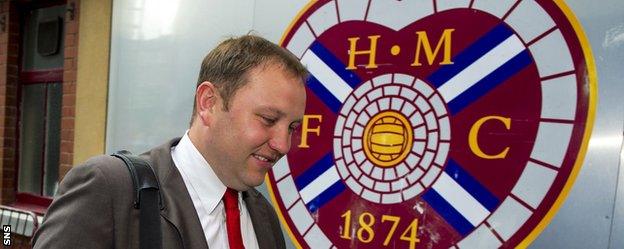
Ian Murray MP admits there are many challenges to be overcome by fans wanting to take over clubs
"So it was borne out of crisis and not every club will be in the same position, which is why every single model of fan ownership will be completely different for different clubs.
"If there are fans' bodies out there that want to discuss with owners who have shareholdings in terms of how to get hold of the club, the first thing to do is to open up constructive dialogue, to work in partnership with them and to say 'we want to do this'.
"And then to show some willing with the supporters base that they're able to raise the revenues and cash to be able to do it.
"In that sense there might be a lot of owners of football clubs out there that want an exit strategy or at least a partial exit strategy and the fan base are able to provide that."
Brian McCafferty, Motherwell chairman
"We've got five years to repay Les [Hutchison's] loan but over the next few months I think our job is to convince the fans who were a bit sceptical to begin with that it's most important that we get their support.
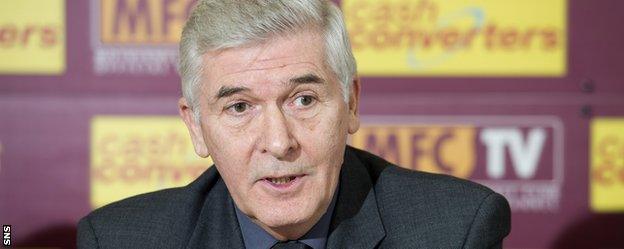
Brian McCafferty says the fan-ownership model at Motherwell relies on supporters turning up to games
"If we don't get enough income coming through the gates, if we don't get enough income through the commercial side of the business, and we don't have enough people joining the society, we don't have enough money to pay back the loan and our dream will be a nightmare."
Mike Mulraney, Alloa Athletic chairman
"Dundee, a big club, went fan-owned and it lasted less than two years and the fans decided they actually didn't like it very much.
"We've got another club that's been fan-owned for a long time that's recently made a statement about the financial problems they're facing because of it.
"The financial tsunamis that face any business and particularly Scottish football, sometimes one owner lends itself to being able to cover those problems. Does it work for my club? Patently it does. Do I believe my club would be where it is if there was fan ownership? I 100% believe it would not.
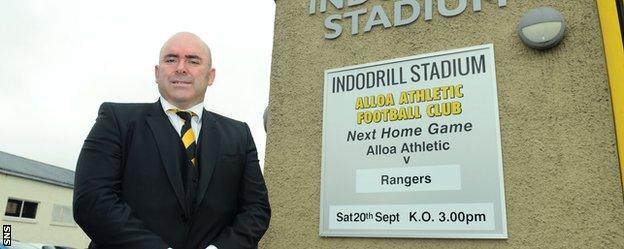
Alloa chairman Mike Mulraney insists fan-ownership would not be the right model for his club
"And you've got to look at some of our competitor clubs that are fan-owned to see where they are.
"Every ownership structure has a danger and if one owner is pump-priming continually his club, when he stops doing that the circumstance of that club will change.
"But that can be the case whether it's one owner or a fan-owned committee.
"If the people who are organising a club run it badly and the structures are inappropriate and it hits a problem, then the club's going to have a problem.
"If you run your business badly, it will do badly."
Paul Goodwin, fan advisor
"There are some people who have been running their own little dictatorship and they enjoy it and they don't want to see change.
"But change is coming. That's maybe five, six, seven clubs in Scotland that have changed to this model. So I think that will continue to grow.
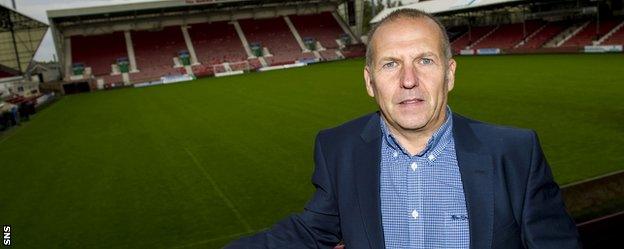
Paul Goodwin, formerly of Supporters Direct, has advised fans across Scotland on taking over their clubs
"But like in any business there will be people who say 'No. I don't really want that' and there are arguments on both sides.
"It would be fantastic for Scottish football if there was a Roy MacGregor [Ross County chairman] at every single club who invested an awful lot of money. The reality is that there isn't.
"There's no perfect model, there are definitely still people out there who have their doubts but when we get Hearts and Motherwell into a good position, I think it's a matter of time until people see it as an alternative."
- Published3 March 2015
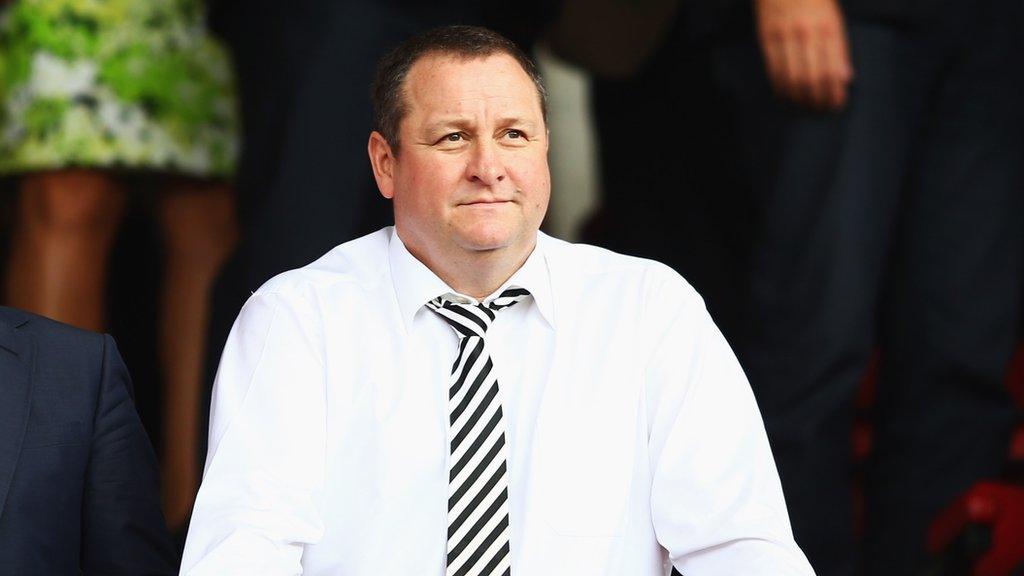
- Published3 March 2015
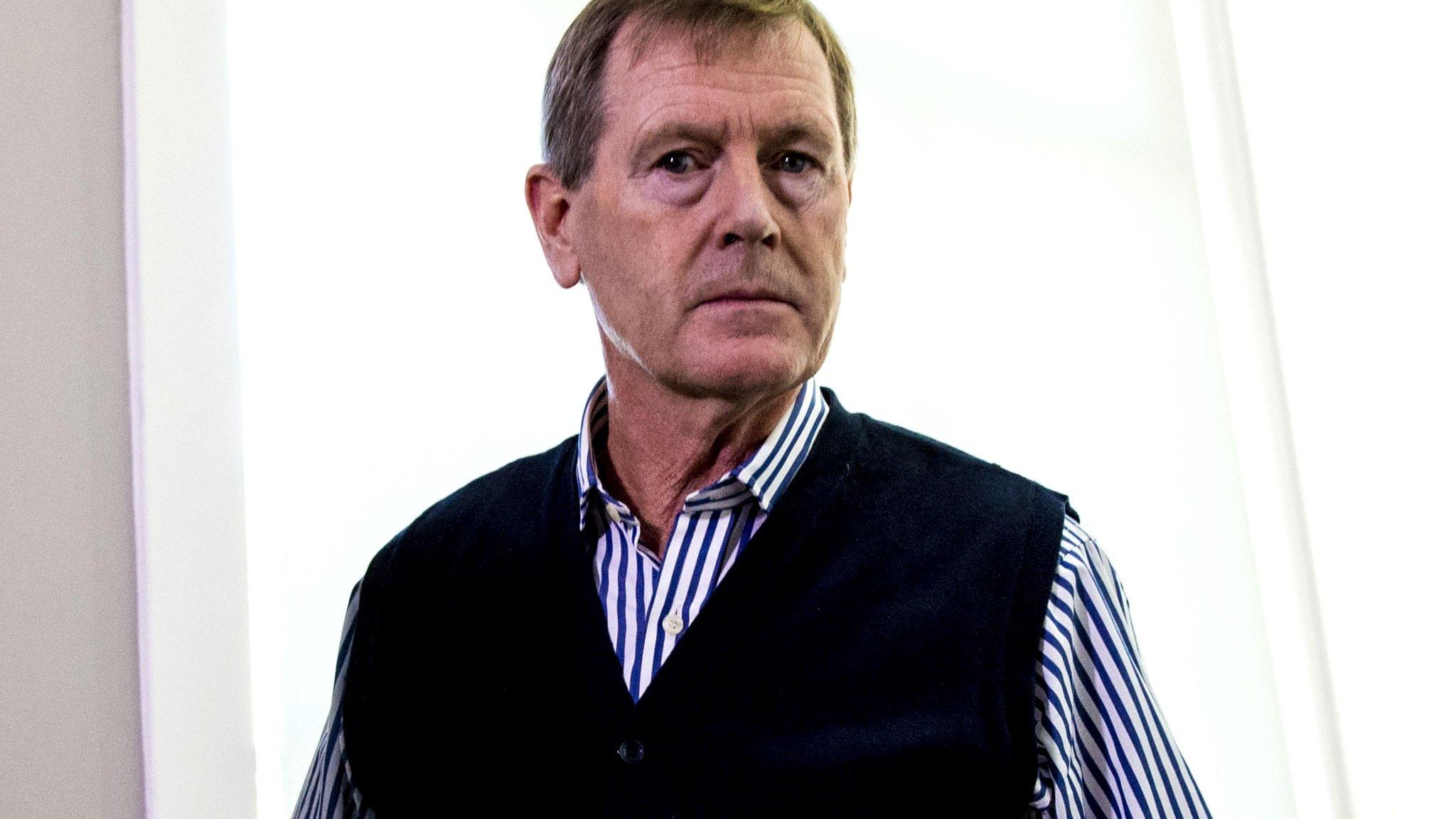
- Published3 March 2015
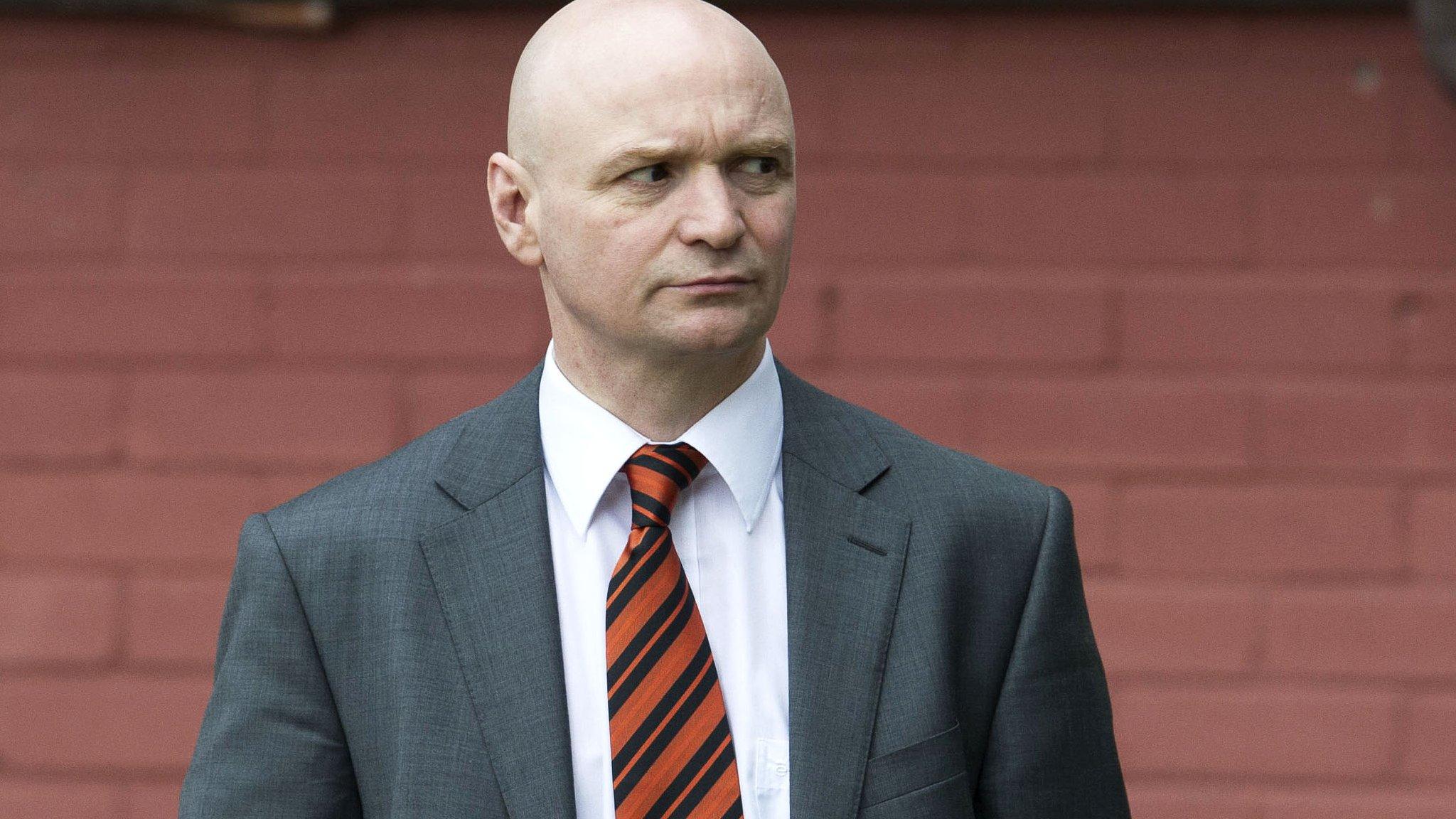
- Published3 March 2015
